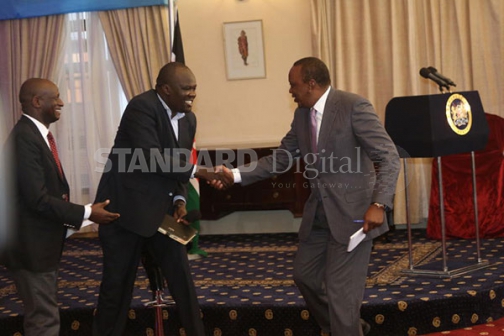×
The Standard e-Paper
Smart Minds Choose Us

NAIROBI: President Uhuru Kenyatta has directed the termination of lopsided contracts with Independent Power Producers (IPPs) to reduce the cost of power.
He said it was unfair for Kenyans to continue struggling with high cost of power because of skewed deals with IPPs operating thermal generators.